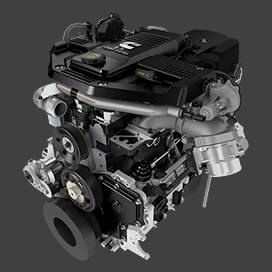2 月 . 15, 2025 00:04 Back to list
when to replace trailer brake drums
When considering the maintenance of your trailer, one critical aspect is the condition of the brake drums. Replacing these components in a timely manner is vital for ensuring safety, optimal performance, and longevity of your trailer. Here's an in-depth exploration of when to replace trailer brake drums, factoring in experience, expertise, authoritativeness, and trustworthiness.
5. Mileage and Usage The lifespan of brake drums can also depend on mileage and usage conditions. As a trusted guideline, brake drums should generally be inspected every 12,000 miles. Trailers used for heavier loads might require more frequent inspections and replacements at a lower mileage. 6. Corrosion Trailers exposed to the elements, especially road salts in winter months, are prone to rust and corrosion. When rust becomes pervasive, undermining the drum’s ability to dissipate heat, replacement should be considered. Regular maintenance and coating can reduce this risk. Adhering to manufacturer's guidelines is crucial, as these provide specific advice based on the design and material used in the brake drums. Trust authorized service centers for challenging inspections and replacements; they possess both the expertise and the tools necessary for accurate assessments and repairs. Document all services and replacements in your maintenance log; this not only assists in warranty claims but also serves as a trustworthy record of your trailer’s condition. Furthermore, an authoritative resource for trailer owners is joining forums or local clubs where real-life experiences are shared. Experts in these communities often discuss unique issues faced with specific brands or models, offering solutions that align with your scenario. When considering replacement, recognize that investing in high-quality brake drums can enhance your trailer's performance and safety. Establish relationships with reputable manufacturers and dealers, ensuring the authenticity and suitability of the parts you purchase. In conclusion, timely replacement of trailer brake drums is an integral part of maintenance that bolsters safety and performance. Relying on a blend of professional expertise, regular inspections, and adherence to manufacturer guidelines ensures you manage this task effectively. Emphasizing quality and diligent record-keeping can further enhance the trustworthiness of your maintenance practices. By prioritizing these actions, you safeguard not only your trailer but also those who share the road with you.


5. Mileage and Usage The lifespan of brake drums can also depend on mileage and usage conditions. As a trusted guideline, brake drums should generally be inspected every 12,000 miles. Trailers used for heavier loads might require more frequent inspections and replacements at a lower mileage. 6. Corrosion Trailers exposed to the elements, especially road salts in winter months, are prone to rust and corrosion. When rust becomes pervasive, undermining the drum’s ability to dissipate heat, replacement should be considered. Regular maintenance and coating can reduce this risk. Adhering to manufacturer's guidelines is crucial, as these provide specific advice based on the design and material used in the brake drums. Trust authorized service centers for challenging inspections and replacements; they possess both the expertise and the tools necessary for accurate assessments and repairs. Document all services and replacements in your maintenance log; this not only assists in warranty claims but also serves as a trustworthy record of your trailer’s condition. Furthermore, an authoritative resource for trailer owners is joining forums or local clubs where real-life experiences are shared. Experts in these communities often discuss unique issues faced with specific brands or models, offering solutions that align with your scenario. When considering replacement, recognize that investing in high-quality brake drums can enhance your trailer's performance and safety. Establish relationships with reputable manufacturers and dealers, ensuring the authenticity and suitability of the parts you purchase. In conclusion, timely replacement of trailer brake drums is an integral part of maintenance that bolsters safety and performance. Relying on a blend of professional expertise, regular inspections, and adherence to manufacturer guidelines ensures you manage this task effectively. Emphasizing quality and diligent record-keeping can further enhance the trustworthiness of your maintenance practices. By prioritizing these actions, you safeguard not only your trailer but also those who share the road with you.
Latest news
-
Brake Drum for Kamaz Trucks Durable OEM Replacement & High Performance
NewsMay.30,2025
-
Brake Drum Man High-Quality Drum Brake & Shoe Solutions
NewsMay.30,2025
-
High-Performance Brake Drum for Kamaz Trucks Durable Drum Brake Components
NewsMay.29,2025
-
Brake Drum Man High-Quality Drum Brake Drums & Brake Shoes
NewsMay.29,2025
-
Brake Drum MAZ High-Performance & Durable Replacement Parts
NewsMay.29,2025
-
heavy truck brake drums
NewsMar.07,2025
